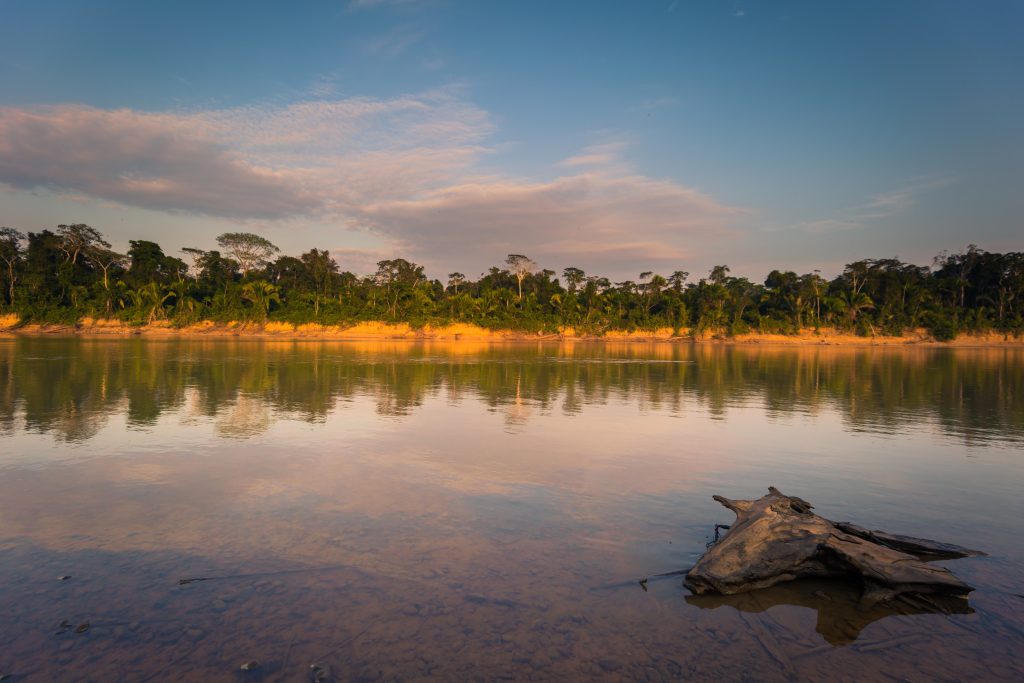
www.optimistdaily.com
Steering toward the future: how solar-powered canoes are transforming life in the Amazon
BY THE OPTIMIST DAILY EDITORIAL TEAM
In the dense, green arteries of Ecuador’s Amazon, something remarkable is gliding across the water without a sound. These aren’t ordinary boats. They’re solar-powered canoes, and they’re ushering in a transformative way for Indigenous Achuar communities to travel, heal, connect, and protect their homeland.
Imagine 20 athletes from an isolated village setting off on a reunion journey, not in noisy, polluting boats, but aboard a sleek canoe powered by the sun. That scene recently unfolded in the village of Kusutkao, near Ecuador’s border with Peru. For many of the young men aboard, the sports competition in a neighboring village wasn’t just a match; it was a long-overdue return to childhood roots.
These canoes are more than a mode of transport. They’re a symbol of self-determination and innovation, carrying schoolchildren, expectant mothers, elders, and mourners. As one resident, Ninki Roland Antik, recalled, a solar canoe once saved his wife’s life after a miscarriage by getting her to medical care. “Thanks to that, my wife is alive,” he said.
Why rivers matter—and what went wrong
In Pastaza province, a region nearly the size of Belgium, roads are few and far between. For the 7,000 Achuar people living here, rivers are lifelines. Historically, travel meant dugout canoes and a deep relationship with the river. But over the past few decades, noisy, fuel-guzzling boats called peque peques have taken over.
With the power to travel farther and faster, these diesel boats reshaped life in the region but not without consequences. Peque peques leak oil into waterways, pollute the air, and disrupt fish populations. “There used to be plenty of cachamas, bocachicos and tanglas here,” said Achuar elder Anchumir Tentets. “But when the peque peque arrived, the fish disappeared.”
Worse, diesel fuel in the Amazon is expensive; sometimes it costs ten dollars a gallon which is more than five times the cost in urban areas. Many can’t afford the rides these boats offer. Tentets remembers missing trips to the city to collect his government stipend simply because he didn’t have the cash.
The sun, a story, and a solution
The seeds of a new idea were planted in 2009, when Oliver Utne, a young American volunteer, arrived in the Achuar community of Yutzuintza. Immersed in the local way of life, Utne heard stories of a mythical electric eel—Tapiatpia—that ferried beings along the river’s floor.
Years later, trained as a solar technician, Utne returned with a vision: What if the Achuar could create their own Tapiatpia? A canoe that ran on solar power, blending ancient myth with modern science.
With the community, Utne co-founded Kara Solar, a nonprofit dedicated to building clean, reliable water transport. In 2017, the first canoe launched, navigating over 1,100 miles to prove it could handle the journey. Today, solar canoes operate in multiple countries, and the Achuar are aiming high with plans to launch 250 more in five years.
Innovation meets resistance
Of course, nothing in the Amazon is simple. Imported engines sometimes falter in the region’s unpredictable rivers, clogged with tree trunks and seasonal shifts. “The littlest thing goes wrong, and the whole boat stops working,” Utne admitted.
Some locals still prefer diesel, arguing that speed matters when minutes can mean the difference in health emergencies or commerce. Andrés Granda, the elected provincial leader, echoed that sentiment, stressing the need for practical solutions. But he also acknowledged the power of solar boats as a preservation tool, calling them “a vital step to keep the territory preserved.”
In response to challenges, Kara Solar is adapting again and modifying diesel boats to run on solar, while launching Motores Amazonas, a new company working with the Achuar to create stronger, locally adaptable engines.
A vision rooted in sovereignty
At the heart of the solar canoe movement lies a deeper purpose: sovereignty. The Achuar have seen what happens when roads carve through rainforest: disruption, deforestation, and rising substance abuse. That’s why they’re determined to steer their own course, preserving not just the forest, but their traditions, values, and autonomy.
“We don’t want roads here,” said Nantu Canelos, president of Kara Solar. “Highways destroy communities.”
Instead, they’re reimagining mobility on their own terms by turning rivers into solar highways and building boats that serve their people, not polluters. They are proving that the future of the Amazon might just lie in the power of a quiet, sunlit canoe.The post Steering toward the future: how solar-powered canoes are transforming life in the Amazon first appeared on The Optimist Daily: Making Solutions the News.










